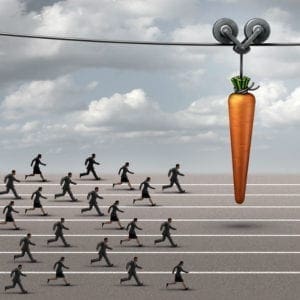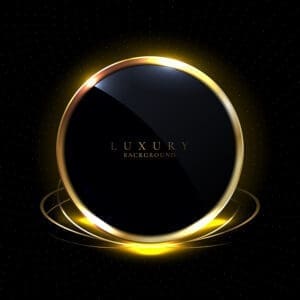 Hospitality is an industry that has changed hugely over the 35 years I have been involved with it. Not only with the sheer volume of eating establishments that are available to us now but also our approach to dining has completely changed. Customers are dictating how, when, what and where they want to eat and are now also in control of how they order and how they pay for it.
Hospitality is an industry that has changed hugely over the 35 years I have been involved with it. Not only with the sheer volume of eating establishments that are available to us now but also our approach to dining has completely changed. Customers are dictating how, when, what and where they want to eat and are now also in control of how they order and how they pay for it.
Technology continues to change the way we do everything in both a personal and a professional capacity, with people looking to find faster and easier ways to do everything. However in my view, the hospitality industry has only just started to really embrace this in the last five years. This is not because we are not forward thinking enough, it is because we have been trained and conditioned to one way of thinking – and ultimately to change is perceived as being a difficult and time-consuming task.
Typically, technology has dominated and progressed in the following key areas in hospitality:
- Booking apps and websites
- Customer/guest management
- Hotel reservations
- Finance systems
- EPOS systems/payment apps
- Pre-ordering apps
All of which are predominantly customer and/or Front of House focussed.
However, in my experience, culinary teams have been slow to respond to embracing technology at work, although many chefs will have smart phones and/or tablets, which they use for research, social media and gaming. In my view, this is because what has been available to them to support them in their roles was neither exciting, nor tailored to how they run their operations.
I launched Kitchen CUT in 2012 because I’ve experienced almost every job function in food & beverage – both operationally and from a management point of view – and had become frustrated over the years that software for kitchens didn’t seem to be progressing and developing as quickly as in other areas of hospitality or indeed in other industries
My team and I speak to chefs/cooks all the time to find out what they like about their job, their challenges and what would make their lives easier. It will come as no surprise that the majority of chefs would like to spend more time creating, cooking, developing, innovating and working with their teams. This is why chefs became chefs in the first place – to work with food, create fantastic dishes and dining experiences that make customers happy.
Over the years, the financial and managerial pressures of running a professional kitchen have pushed chefs into areas where they do not always feel comfortable – such as finance, cost control, payroll, and staff management. The outcome can end up in two scenarios:
- The chefs will try to do this manually and spend many frustrating hours a week producing varied quality reports and spend less time on the food, being creative and ensuring that quality is maintained.
- The chefs will not do this and struggle with this part of their job, which will cause fluctuating results and frustrations from management /ownership.
The EU legislation in 2014 that required food establishments to provide diligent processes for tracking allergens in dishes has further added to the time constraints of chefs – increasing administration time and impacting on time in the kitchen. Some chefs I’ve spoken to spend nearly 10 hours a week writing out allergen reports for the changing daily menus. To me, this is a prime example of where technology can help to automate a process and even mitigate human error.
Like it or loathe it, technology has the ability to simplify business operations and give operators confidence that administrative tasks are being done and that there is an underlying structure and process in the business. Kitchen teams can automate manual tasks that otherwise detract them from doing what they do best.
By definition, disruptive technology implies change to the norm. The norm for chefs of today is a career burdened with admin and less opportunity to spend time creating innovative culinary experiences. The right technology has the ability to transform a business – by embracing it and allowing systems to do many of the administrational tasks that are expected of them, chefs will be able to do more of what excites them.
Whichever we look at it, the chefs of the future need to have culinary, financial and managerial skills to really compete in our forever changing industry. Chefs universally have one thing in common – a passion for food and creating culinary dishes that customers enjoy and return time and time again to experience – technology should help them to achieve it and not hinder them.
About the author
 John Wood ’s career has taken him to Europe, Asia, South Africa and Dubai, working in 5* establishments including the Vier Jahreszeiten in Hamburg, the Mount Nelson, Cape Town, and the Island Shangri-la, Hong Kong. He has also worked extensively in the UK at the prestigious Savoy, The Dorchester and the Cliveden hotels. The latter at which John gained a Michelin star in Waldo’s restaurant.
John Wood ’s career has taken him to Europe, Asia, South Africa and Dubai, working in 5* establishments including the Vier Jahreszeiten in Hamburg, the Mount Nelson, Cape Town, and the Island Shangri-la, Hong Kong. He has also worked extensively in the UK at the prestigious Savoy, The Dorchester and the Cliveden hotels. The latter at which John gained a Michelin star in Waldo’s restaurant.
After many years in large operations, John’s desire to prove himself in a standalone restaurant operation led him to take the position of Executive Chef at the highly successful Chapter One on the outskirts of London. He also set up and opened a second operation during his time there, Chapter Two in Blackheath. The lure of the world famous 7 star Burj-al-Arab hotel in Dubai was enough to tempt him back into hotels for his final executive chef position.
John has achieved a Michelin star, 4 AA Rosettes and 8 out of 10 in the good food guide, all of which prove his outstanding ability in a kitchen brigade, whilst always remaining focused on the financial success of a business. John has managed international teams from 10 to 500 chefs in award-winning, multi-outlet operations with large banqueting operations, catering up to 5000 covers.
In 2012 John founded Kitchen CUT, a company that provides cutting-edge, cloud-based technology that gives you real-time intelligence to transform your F&B business.


















